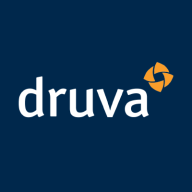

Druva Phoenix and AWS Backup compete in the cloud backup and recovery space. Druva Phoenix is noted for its cost-effectiveness and strong support, while AWS Backup stands out for its integration capabilities and extensive features.
Features: Druva Phoenix offers cloud data protection, scalable backup, and efficient disaster recovery. These features are designed for users who prioritize data integrity and quick recovery solutions. AWS Backup, on the other hand, provides seamless integration with other AWS services, comprehensive backup management, and policy-driven automation, which suit businesses already within the AWS ecosystem.
Room for Improvement: Druva Phoenix could enhance its ransomware protection beyond VMs, improve AI tool integration for analytics, and provide more robust CPU-resource management. AWS Backup might benefit from improving its personalized customer support, simplifying some aspects of its backup management processes, and enhancing cost visibility for users unfamiliar with its pricing structure.
Ease of Deployment and Customer Service: Druva Phoenix is recognized for straightforward deployment and reliable customer support, facilitating a quick start and ongoing assistance. AWS Backup also enables efficient deployment for those already using AWS services; however, its support may not match the personalization seen with Druva Phoenix.
Pricing and ROI: Druva Phoenix offers a predictable pricing model that often leads to favorable ROI, particularly for budget-conscious businesses. Conversely, AWS Backup's higher initial costs are offset by its advanced features and capabilities, providing justified ROI for enterprises entrenched in the AWS infrastructure.


AWS Backup is a fully managed backup service that makes it easy to centralize and automate the backup of data across AWS services. With AWS Backup, you can create backup policies, define backup schedules, and manage backups across multiple AWS accounts and regions from a single console. It supports a wide range of AWS services, including Amazon EBS volumes, Amazon RDS databases, Amazon DynamoDB tables, Amazon EFS file systems, and more.
AWS Backup provides a simple and cost-effective solution for protecting your data and ensuring business continuity. It offers features like cross-region replication, incremental backups, and point-in-time recovery. With AWS Backup, you can easily restore your data to any point in time and recover from accidental deletions or data corruption.
It also provides a centralized view of your backup activity, allowing you to monitor and manage backups across your entire AWS infrastructure. AWS Backup is designed to be highly durable and secure, with data encrypted at rest and in transit. It integrates with AWS Identity and Access Management (IAM) for fine-grained access control and supports compliance with various industry standards and regulations.
Druva Phoenix is a comprehensive cloud-based data protection and management solution that enables organizations to securely backup, recover, and manage their data across endpoints, physical servers, virtual machines, and cloud applications. With its scalable and flexible architecture, Druva Phoenix simplifies data protection and eliminates the need for traditional backup infrastructure.
By leveraging the power of the cloud, Druva Phoenix offers organizations a cost-effective and efficient way to protect their critical data. It provides automated backup and recovery capabilities, ensuring that data is always protected and easily recoverable in the event of a disaster or data loss. With its global deduplication and compression technology, Druva Phoenix minimizes storage requirements and reduces costs.
Druva Phoenix also offers advanced features such as point-in-time recovery, allowing organizations to restore data to a specific point in time, and granular file-level recovery, enabling users to recover individual files or folders. Its intuitive web-based console provides a centralized view of all protected data, making it easy to manage and monitor backups across the entire organization.
In addition to data protection, Druva Phoenix offers comprehensive data management capabilities. It enables organizations to gain insights into their data through advanced analytics and reporting, helping them make informed decisions and optimize their storage resources. Druva Phoenix also supports legal and compliance requirements by providing eDiscovery capabilities and ensuring data is retained and disposed of according to regulatory guidelines.
With its cloud-native architecture, Druva Phoenix offers organizations the flexibility to protect and manage their data across a wide range of environments, including on-premises, remote offices, and cloud applications such as Microsoft 365 and Google Workspace. It seamlessly integrates with popular cloud platforms like AWS and Azure, allowing organizations to leverage their existing cloud investments.
We monitor all SaaS Backup reviews to prevent fraudulent reviews and keep review quality high. We do not post reviews by company employees or direct competitors. We validate each review for authenticity via cross-reference with LinkedIn, and personal follow-up with the reviewer when necessary.